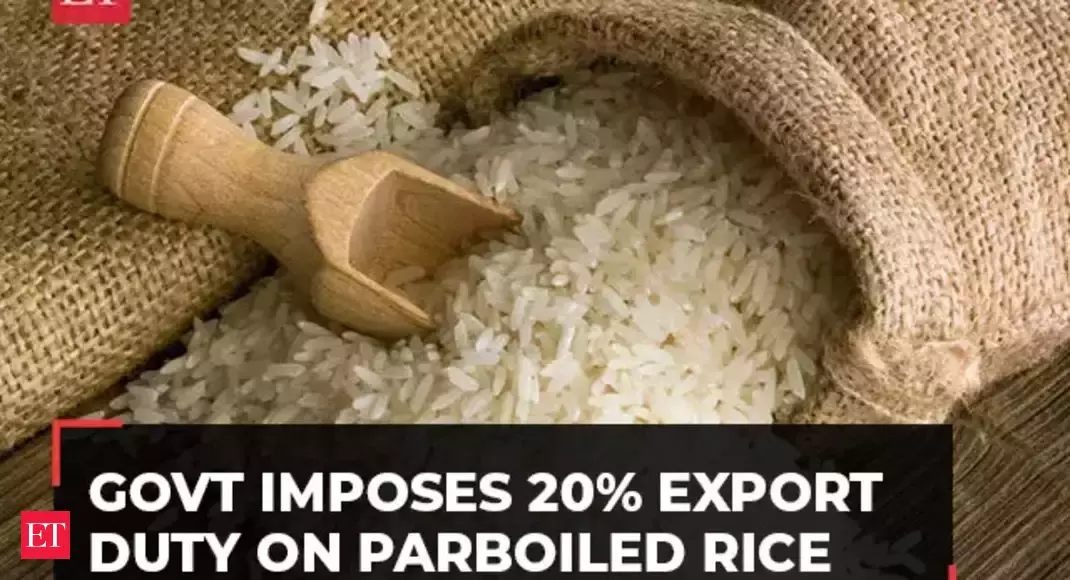Free Courses Sale ends Soon, Get It Now


Free Courses Sale ends Soon, Get It Now



Copyright infringement not intended
Picture Courtesy: The Economic Times
Context: The government imposed a 20% export duty on parboiled rice with immediate effect. This decision was made to curb the surge in rice shipments that occurred after July 20, when the government banned exports of non-basmati white rice. This duty is intended to restrict the outflow of rice from the country and potentially stabilize domestic rice prices.
Details
Key Highlights
Export duties on Agricultural products
About
Objectives
Potential consequences
Challenges
Way Forward
Conclusion
Must Read Articles:
MINIMUM EXPORT PRICE: https://www.iasgyan.in/daily-current-affairs/minimum-export-price
|
PRACTICE QUESTION Q. What are the implications of imposing export duties on rice? How do these duties impact trade, and what challenges might arise? What strategies can be implemented to overcome these challenges and ensure a productive way forward for both exporting countries and the global market? |
© 2024 iasgyan. All right reserved